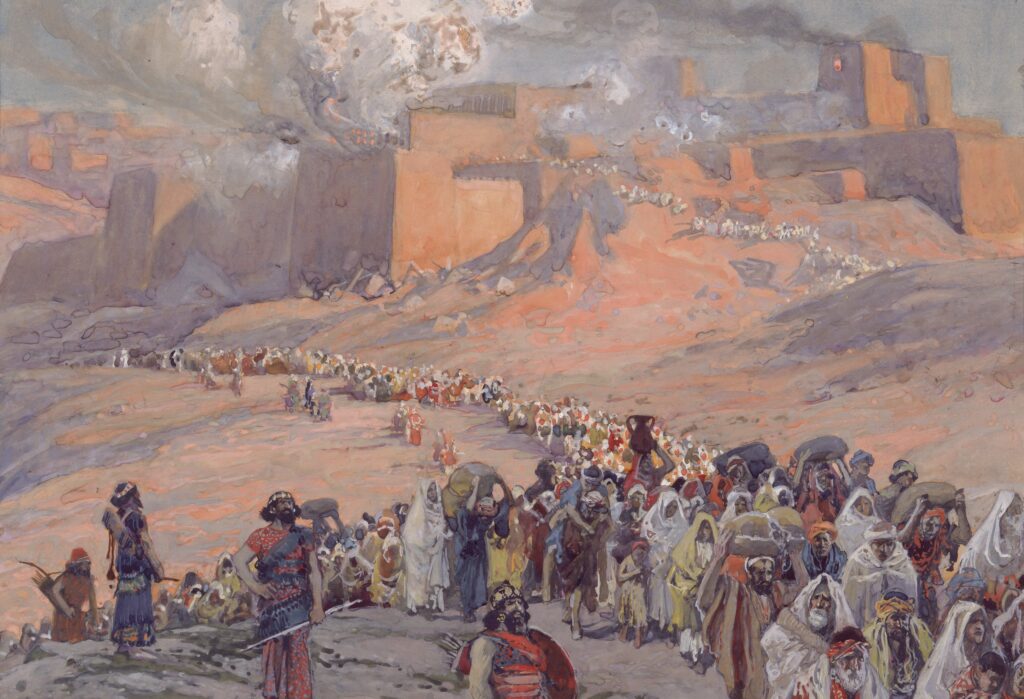A major problem in American Christianity today is the notion of “Judeo-Christian” values and “dual-covenant” theology. These notions are contributing factors to Christian Zionism and why some Americans believe that our people should sacrifice for Israel.
Up until recently, the closest thing to a dual covenant was that Gentile believers in Christ didn’t have to adopt Jewish rules like circumcision or dietary laws, but Jewish believers did (as evidenced in the Council of Jerusalem, with key verses in Acts 15:19-15:29). The term “Judeo-Christian” in relation to “values” was used for the first time in 1821 as a theory on how to convert Jews to Christianity by retaining aspects of Jewish traditions in certain churches. The term doesn’t seem to have had much use again until the mid-20th century, where it basically became the raison d’être of the United States and the reason many “conservatives” act as if defense of Israel is the reason why America exists. If you remember some of the words of Donald Trump, you’d think that America is a vassal of Israel.
Many “Christians” have argued Jews are automatically saved, but never have a strong scriptural basis for it. They often argue by clinging to one of many verses out of context like “I will establish my covenant between me and you and your offspring after you throughout their generations for an everlasting covenant, to be God to you and to your offspring after you” (Genesis 17:7). However, this would imply all Muslims are also saved (a point Martin Luther brings up in his Book of Hot Takes) and because Christ says explicitly the blood link to Abraham is not enough for salvation, confirming the blank check is untrue (Luke 3:8).
There are a few key passages that clearly demonstrate the covenant is not an absolute. God says, “But this command I gave them: ‘Obey my voice, and I will be your God, and you shall be my people. And walk in all the way that I command you, that it may be well with you’” (Jeremiah 7:23). That seems to mean “If you obey, I will protect.” This is further supported when God allows 10 of the 12 tribes of Israel to be destroyed and later allows the Babylonian captivity to occur to the remaining Jews because of their disloyalty to God (2 Kings 17:18-20 and 2 Kings 25). One cannot say that the descendants of Israel are protected when 10/12 of them are wiped out.
Any quote taken out of context is a bad argument, which is why it’s important to look at the Bible as a whole. A running theme throughout the Old Testament is that the Jews abandon God, God abandons them, they repent, He saves some remaining ones, there is a brief good period, they abandon Him, and the cycle repeats.

Some might want to point out the fact that God didn’t destroy all the tribes and that means something about modern Jews being saved. Even without getting into Khazar theory (which is at least partially true), it’s clear that is not the case. The covenant God had with Abraham and later with David involved his heir being on the throne, but that heir is Christ, through whom the throne is established forever, not the state of Israel (2 Samuel 7:13-17). The emphasis on Christ’s blood descent from David throughout the Gospels demonstrates this importance.
If we establish that the Jewish covenant means God only protects the Jews if they worship Him, but they reject Christ, how can anyone believe that the Jews are protected? While it may be tempting to say, “But they’re still worshipping God, just not Jesus,” that doesn’t work. Jesus states, “Whoever acknowledges me before others, I will also acknowledge before my Father in heaven. But whoever disowns me before others, I will disown before my Father in heaven” (Matthew 10:32-33. An almost identical quote is found in Luke 10:16 and John 8:19). That seems clear that if you don’t follow Jesus, you’re not following God.
Regarding the complaint about how expanding the covenant to Gentiles somehow means there are two covenants, recall the parable about the workers who complain to the landowner (Matthew 20: 1-16). The landowner promised the first workers a denarius for a day’s work and he promised the last workers a denarius for a few hours work, and while the first workers complained it was unfair, the employer asked how it was unfair that he gave them what he promised, asking, “Don’t I have the right to do what I want with my own money? Or are you envious because I am generous?” This is precisely what God has done through Christ and the Apostles. He has given Gentiles the chance for salvation, though we came later in the day.
It’s not a dual covenant, but a single one. “I am the good shepherd. The good shepherd lays down his life for the sheep… And I have other sheep that are not of this fold. I must bring them also, and they will listen to my voice. So there will be one flock, one shepherd.” (John 10:11,16).
The Parable of the Wicked Husbandmen is another key passage to assert Jews aren’t exempt from belief in Christ and that belief in Christ is necessary for all (Matthew 21:33-46, Mark 12:1-12, Luke 20:9-19). The parable discusses a man who hired people to check in on his servants who were watching his vineyard and the servants killed each of his inspectors. Finally, the property owner sent his own son and the vineyard servants killed him. Jesus then asked what the lord of the vineyard would do to those who killed his son and the respondents said, “He will miserably destroy those wicked men, and will let out his vineyard unto other husbandmen, which shall render him the fruits in their seasons.” It’s clear from reading the Old Testament that the Jews kept breaking their covenant with God (often by killing His prophets who tried saving them from themselves). Those who kill Christ are obviously not saved, but that’s not the end of it.
Jesus states again, “The kingdom of God shall be taken from you, and given to a nation bringing forth the fruits thereof” (Matthew 21:43). The Jews who reject God will not be saved and instead the Gentiles who accept God through Christ are saved. The Old Testament shows continually the Jews’ punishment for rejecting God’s prophets, and Christ is the last chance for them. There will be no more prophets for them. Because they killed the prophets and the Son of God, God invites Gentiles into the covenant. By rejecting Christ, the Jews reject God and fail their part of the covenant.
While some people may want to support Israel because of Messianic Jews, that argument makes little sense because they make up a tiny portion of all Jews worldwide (roughly 350,000 or 2% of all Jews) and because Messianic Jews recognize that Jews are not automatically saved from their blood relationship to Abraham or to Jacob.
There are many more verses which support this argument, but it’s ultimately just more repetition. There is no dual covenant. There is one covenant and Christ is the fulfillment of it (Matthew 5:17). It’s clear that by rejecting Christ, Jews reject God and that by rejecting God they lose any protection from the covenant. Christian Zionism thus makes no sense, as it is supporting people who reject God and from whom God has withdrawn His protection.
Some may say Christians have a duty to try to convert Jews, as Christians have a duty to preach to all people. That can be argued, but what cannot be argued is that it is our Christian duty to destabilize Israel’s neighbors or give Israel billions of dollars a year in aid when God has withdrawn His protection from Israel. I don’t imagine anyone reading this is much of a supporter of the nation-state of Israel, but hopefully the arguments above will be effective to convince Christian Zionists that their support of Israel is not just foolish, but un-Christian.
A Southern man trying to make a good Southern plan.
Deo vindice!






Well done sir, very good article. The Church has been infiltrated and corruption of purpose has been achieved. I differentiate my faith from Judeo-christian Zionism by calling Jesus Christ by his station in life which is “The Christ”.
Read up on why the disciples quit using the word for The and used Jesus instead, it’s interesting.
I’m not a scripture quoter but somewhere in there a verse in the N.T. that states do not persecute the Jews but do not partake in their Judgement either. I know lately C.I. has been strongly suggested, but I’m not ready to grab both cinder blocks and jump off the pier with that one, at least not yet. Thank you for your work.
I have not really noticed an uptick in people in our circles discussing CI, but if that is indeed taking place I am very glad to hear it.
If you are genuinely interested in learning about it, christogenea.org has an immense library of excellent material. The truth is, only CI has the real answers to the most crucial questions. Only CI gives you the complete picture and puts everything into perspective without contradictions, inconsistencies or emotional biases. Universalist Christians in the dissident right and their secular counterparts talk about the Jewish question, but they don’t actually understand it and therefore do not have the answers to it. What we now call Christian Identity is the one true Christian faith, and prior to the advent of Zionism, European Christendom — our ancestors — knew this very well.
John 14:6 clarifies everything.
Martin Luther’s “Book of Hot Takes.” 😉
I have a Jewish grand parent. but raised in gentile towns. I became a Christian due to my Jewish heritage. Now I had to accept through my own learning that the [Jews] are NO MORE God’s chosen than a China-man , no pun intended.. Judaism I discovered is shown as an extreme wicked, and racist religion, as Islam is.. Mr Ethan Deo Vindice whatever you are, you are SO RIGHT ON TARGET..🔺🎯🎯🎯
My read is that God is not done with Israel. There is a lot of future tense from the Apostle Paul concerning Israel. Hopefully there are many Christians who are not “arrogant in yourselves.”
Romans 11:25-31
For I would not, brethren, that ye should be ignorant of this secret (lest ye should be arrogant in yourselves) that partly obstinacy is come to Israel, until the fullness of the Gentiles be come in.
And so all Israel shall be saved, as it is written, The deliverer shall come out of Zion, and shall turn away the ungodliness from Jacob.
And this is my covenant to them, When I shall take away their sins.
As concerning the Gospel, they are enemies for your sakes: but as touching the election, they are beloved for the fathers’ sakes.
For the gifts and calling of God are without repentance.
For even as ye in times past have not believed God, yet have now obtained mercy through their unbelief:
Even so now have they not believed by the mercy showed unto you, that they also may obtain mercy.
You are right. But as of right now they aren’t grafted in. Its conditional on their repentance.
Excellent and well said Sir.I need this information when talking to my many friends and neighbors who when they think of Jews think of the”chosen people”and not the Satanic Synagogue of Satan which has a stranglehold of all White nations.Several even make joking remarks to me”oh it must be the Jews”mocking me while smiling.Its all a joke to these uninformed fools who know we are under siege yet remarkably still trust information from the very institutions that oppress them.Are they too lazy to think,to use the brain the good Lord gave them?I really believe that the only thing that will shake the masses is for them to become dispossessed of all their comforts.We are headed there and its a shame that people refuse to think proactively and for what best serves the White race.I’ll be making a copy of this article for reference.Thank you and God bless you and all here in good will.
Dispensationalism was largely pushed by John Nelson Darby 200 years ago by Jewish influence.
Dispensationalism and Covenantalism play a large part in how we read and interpret key parts of the Bible and it is important to understand the implications.
What is the difference between Dispensational & Covenant Theology? Dispensationalism and Covenantalism are essentially two different approaches to scripture that have drastically different implications. Dispensationalism relies on literal hermeneutics, whereas Covenantalism gives more credit to literary genre, figurative language, context, and co-text.
Dispensationalism
Dispensationalists approach scripture with a “consistent-literal” hermeneutic. This means that they think scripture should always be interpreted by its most literal meaning.
They also believe that although the Old and New Testaments build off of each other the New Testament does not redefine or bring clarity to the Old Testament.
One of the areas in which these views is consistently talked about is in eschatology.
Because of their approach to Scripture, Dispensationalists view Revelation as if none of it has yet taken place. All of it is yet to happen in the future.
They also usually look at the New Testament in light of Revelation instead of Revelation in light of the New Testament.
Another important book of the Bible used in eschatology is the book of Daniel. They would interpret scenarios such as the 70 weeks in such a way that the 70th week has not yet happened. That it is sometime yet to come in the future.
Covenantalism
Covenantalists approach scripture with a greater emphasis on literary genre, context, and co-text. They believe that you should thoroughly examine these three elements of scripture in order to discern the best interpretation.
They do believe that the New Testament can re-interpret, or bring clarity to Old Testament passages. They would argue that God is revealing himself over time and the New Testament is a fresh revelation of the mystery of the kingdom.
As I said before, on of the areas where this discussion is especially pertinent is the realm of eschatology.
Most covenantalists believe that Revelation 1-19 has occurred already and that these events were speaking about the destruction of Jerusalem in 70 AD. Revelation 20-22 has yet to be fulfilled.
They also usually view Revelation in light of the New Testament instead of the New Testament in light of Revelation.
Daniel is another important book in the eschatology discussion. Covenantalists would interpret events like the 70 weeks as already having happened, with the 70th week being at the destruction of Jerusalem.
Dispensationalism includes certain truths regarding the Church, prophecy, and Israel, but it is basically an outlook on the Bible that works on the basis of historic, orthodox tenets of the faith, and attempts to allow the Bible to open itself to the reader.
Covenant
Each of these perspectives also has a different understanding of how God has been at work in our lives throughout history.
Dispensationalism
Dispensationalists believe that God has worked out his plan in seven dispensations. Each follows a pattern of God’s provision: Israel rebels, God judges them for their rebellion, and then God constructs a new way to provide for them.
Innocence: In this first dispensation, Adam and Eve are dwelling in the garden of Eden with full access to the presence of God. However they rebelled and God judged them for this by casting them out of the garden.
Conscience: Then God creates a new way to provide for his people by keeping them accountable through their conscience. However, they rebelled again and the world was rampant with sin. So, God judged them with the flood.
Government: In this dispensation God instituted government to protect his people from sin. Israel sinned again and God sent his judgement through the confusion of languages at the Tower of Babel.
Promise: Here God makes a promise to Abraham to bless others through Israel. Israel rebels once again and God judges them with slavery in Egypt.
Need for a Savior: God then provides the Law of Moses to guide his people and keep them from sin. However, once again the rebelled and God will judge them if they do not believe in the good news of Jesus at the tribulation.
Grace: In this dispensation, God sends his son to provide a way for people to repent and be saved. Judgement won’t come until end times for those who didn’t believe. In this stage, it is possible for someone to be a part of both dispensations. They can be a descendant of Abraham and not repent, therefore receiving judgement. Or, they could become a spiritual descendant of Abraham by repenting and believing the gospel.
New Heaven and New Earth : Finally, in this dispensation, all the believers are able to participate in the millennial kingdom which will culminate in the White Throne Judgement. Those who remain loyal to Jesus get to be part of the New Heaven and New Earth.
Covenantalism
Covenantalists believe that God has only dealt with his people in one way throughout history. According to this perspective God interacts with his people through three main covenants. These covenants have always been present and God’s actions are an expression of one of the covenants.
Covenant of Works: The covenant of works enacted in the beginning at the garden of Eden holds everyone accountable to God for their actions and will be judged accordingly. As a result, we are all deserving of judgement for our sins and will be held accountable.
Covenant of Grace: God did not stop with the covenant of works. He created a way for us to be reconciled to himself through the covenant of grace. God has been doing this throughout history. Those who were faithful to him like Abraham are included in this covenant. However, he made available for all people including gentiles through Jesus. By his death on the cross and subsequent resurrection three days later we are all able to be reconciled to God.
Covenant of Redemption: This is the agreement amongst Yahweh and how to bring about the salvation and redemption of humanity. It is the plan for bringing those faithful to God into his family. There is some debate amongst theologians as to whether this is actually a biblical covenant and how that impacts the interpretation of scripture. It is up to you to discern what you think the Bible is saying on this matter.
God’s People
One of the key differences between dispensationalism and covenantalism is their understanding of Israel, the Church, and the people of God. These differences have a crucial impact on the interpretation of many different end time events.
Dispensationalism
According to dispensationalists there are two separate peoples of God. There are the physical descendants of Abraham and the spiritual descendants of Abraham. Some of the physical descendants also share in spiritual lineage if they repent and believe the good news.
They also believe that all the promises that God has made to Israel need to be fulfilled by national Israel. Therefore, major covenants like the Abrahamic Covenant or Davidic Covenant must be fulfilled by national Israel, they do not believe that Jesus could have fulfilled these covenants.
Covenantalism.
Covenantalists believe that there is only one people of God. The people of Israel and God’s covenant of grace was simply expanded to include Gentile believers. They believe it was always God’s plan and design for it to be this way.
They believe that Jesus was the fulfillment of the major covenants that God made with Abraham and David.
Future of Israel
One of the implications of each views understanding of God’s people is their outcome of the future of Israel.
Dispensationalism
Because dispensationalists think that Israel and the Church are separate this leads to a few specific beliefs about the future of Israel.
Because they are separate, dispensationalists believe that the promises made to Israel must be fulfilled by Israel, not the church. This means that the ethnic nation of Israel still has a role to play in the blessing of the world.
They also believe, as a result, that Israel will play a large part in the coming of the kingdom of God. Jews who didn’t recognize Jesus at his first coming will recognize him in his second and Israel will have a practical role in the leadership of the nations.
Covenantalism
Because covenantalists believe that God’s people is simply expanded and the Gentiles are “grafted in,” they do not believe that the ethnic nation of Israel still has a particular role left to play.
It is important to note that God’s people in this model only include those who have repented and believe the good news. Ethnic Israel is not automatically part of the people of God.
The promises of Scripture are still fulfilled through “God’s People” it’s just that God’s people are not Israel alone. It is all those who repent and believe the good news. This includes Messianic Jews who accept Jesus as the Son of God and his sacrifice and also Gentiles who do the same.
Dispensationalism
Dispensationalism didn’t really come onto the scene in any significant way until the 1800s and even more so in the 1900s. This view was largely pushed by John Nelson Darby.
This view gained popularity in the face of the mounting Christian Liberalism that was sweeping over the country. During this time Dispensationalism’s commitment to the literal interpretation of Scripture protected Christian orthodoxy.
This view was also perpetuated through the Scofield Reference Bible. One of the first Bibles published with this theology.
Covenantalism
Covenantalsim is the position traditionally held by the church throughout most of history. However, this was not a popular topic of conversation until later on so there is not a lot of documentation of early church fathers and what they believed on this subject.
Dispensationalism
This view died out in the 1800s and especially the 1900s due to the rise of dispensationalism and the battle with Christian Liberalism. However, it has been climbing in popularity in recent years.
Some prominent dispensationalists include D.L. Moody, C.I. Scofield, and Lewis Sperry Chafer. Each of these men contributed to the rise of dispensationalism and continue to influence many of todays future theologians.
D.L. Moody created Moody Bible Institute which now serves to “equip people with the truth of God’s Word using new technology in an agile and innovative community.”
C.I. Scofield helped to create the Scofield Reference Bible which would popularize dispensational thought for years to come.
Covenantalism
William Carey is one of the most influential missionaries of all time. He is often considered the father of Protestant missions and his work helped to initiate the “Great Century,” a period of fruitfulness in missions.
What many people don’t realize is the impact of eschatology on his passion for the mission field. Carey takes a covenantal, optimistic, postmillennial view of eschatology.
This view dictates that the second coming of Christ will occur after the millennium which will be a time of Christian power and prosperity. Carey connects this with the Great Commission and prioritizes it as a result, seeking that Christ would return soon.
This caused him to pursue the Great Commission with the fervor that would make him the father of Protestant missions.
Galatians 3:29 Single handedly destroys this dual covenant theory regarding both salvation and the notion that Jews are The Chosen within a New Testament context.
John 5:23 is fairly plain, as is the entire gospel and epistles of John the Beloved Disciple. If they don’t acknowledge the only begotten Son, they don’t have the Father in whom rests their boast of ‘chosenness’.
Good and timely article addressing a widespread heresy that misleads and enervates the church today. One other key verse, perhaps more important that all those cited in the article, is Gal 3:16 where Paul explains that promises to Abraham, ALL of them, were inherited by his heir in particular, not his descendants in general. Seed is singular, not plural and the single heir is Jesus Christ. Therefore, the promises are bestowed upon Christ in particular, not the Jewish people in general, and Christians are co-heirs in Christ (Gal 3:29)
“None may come to the Father except through me”. – John 14:6